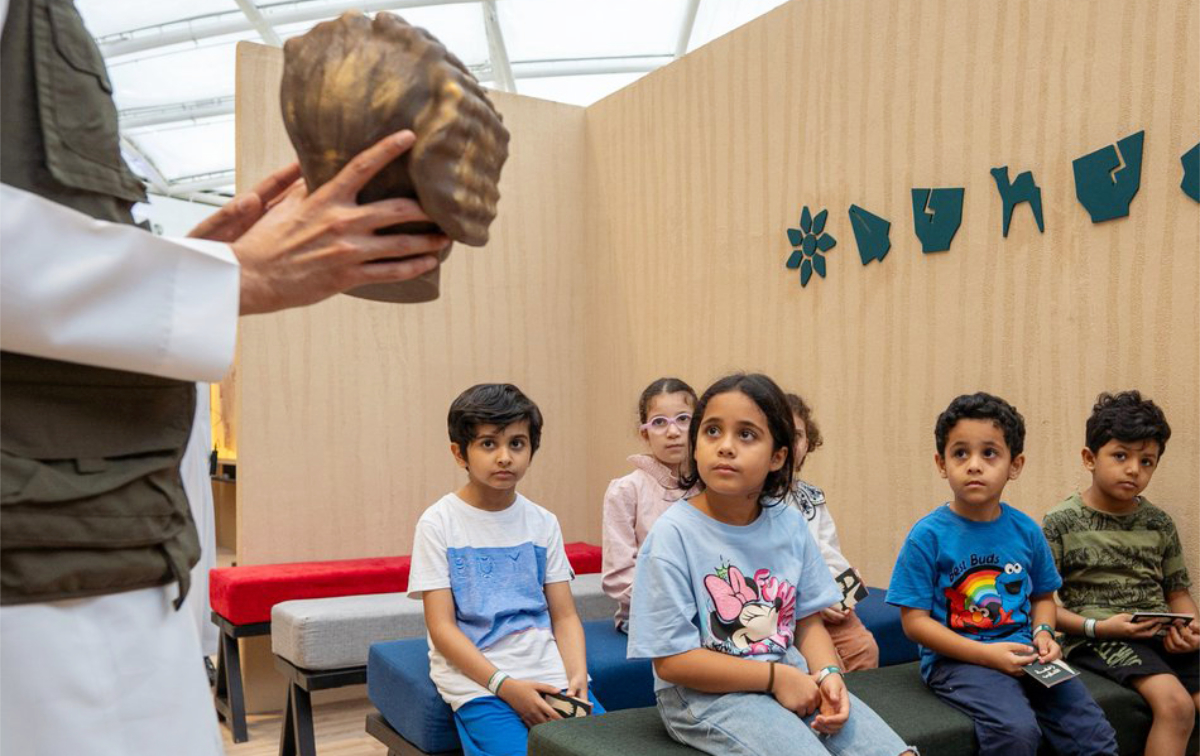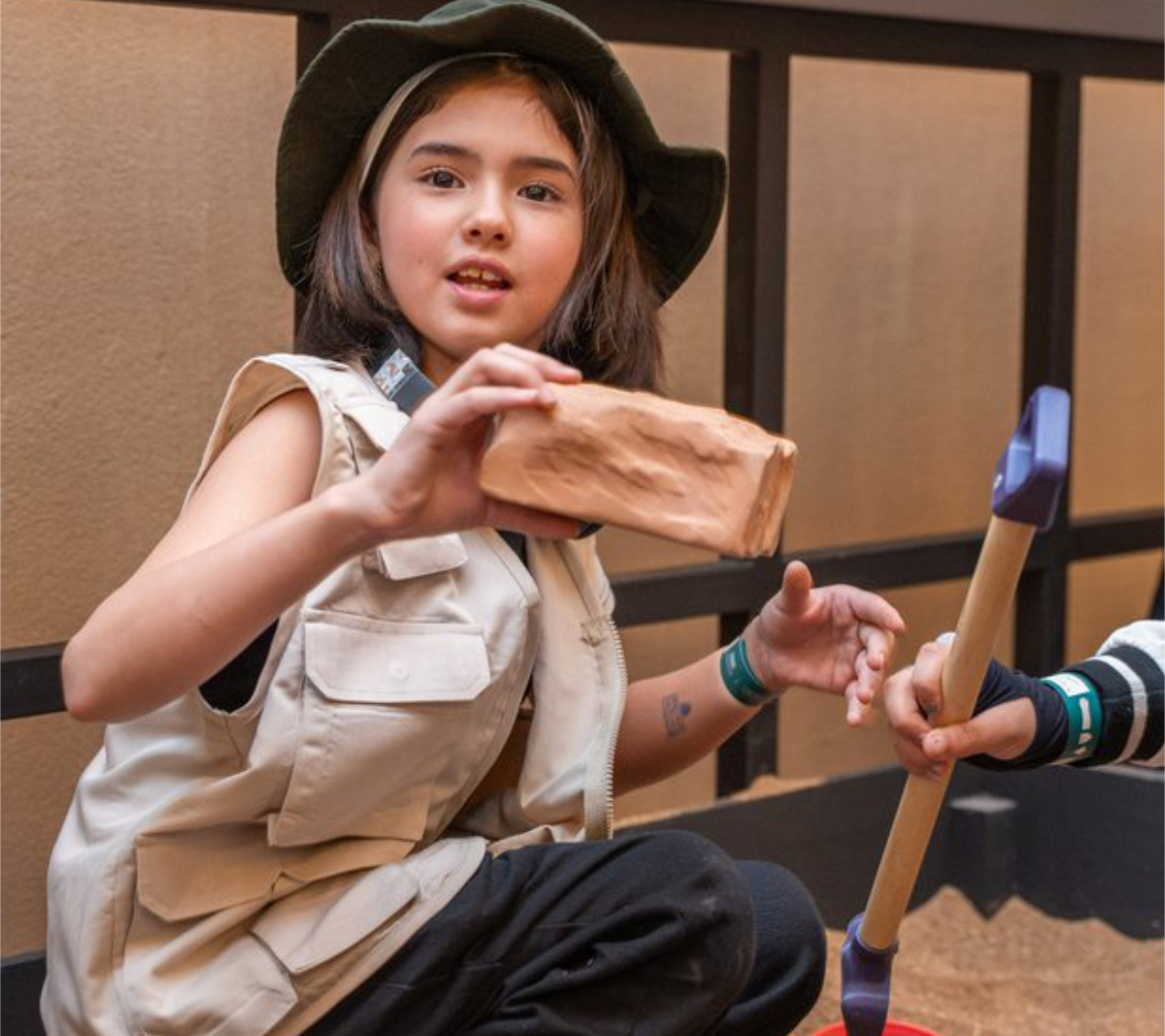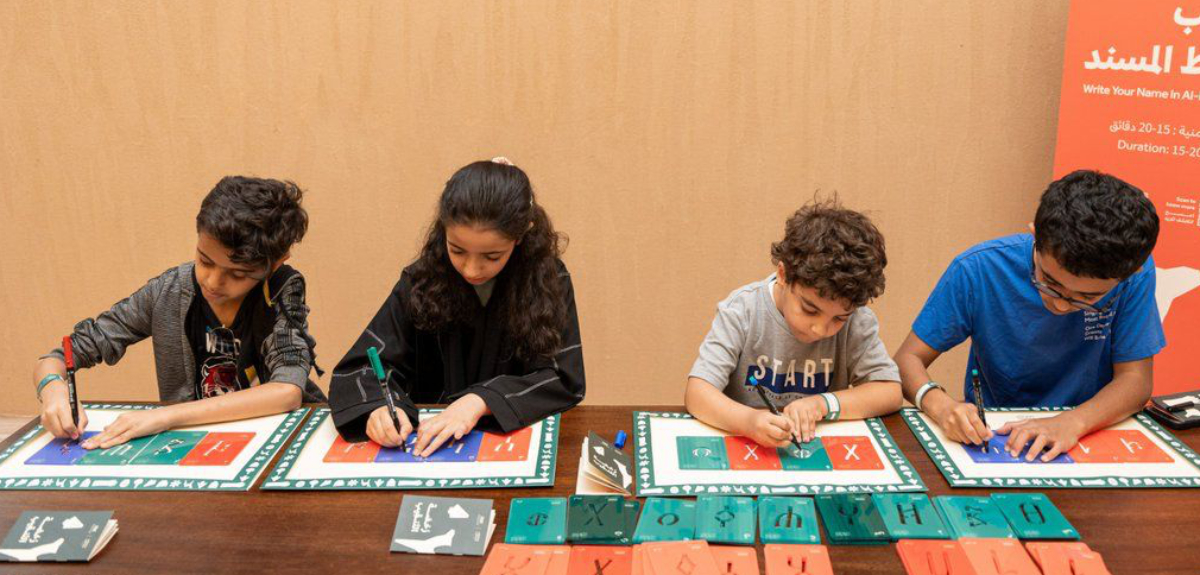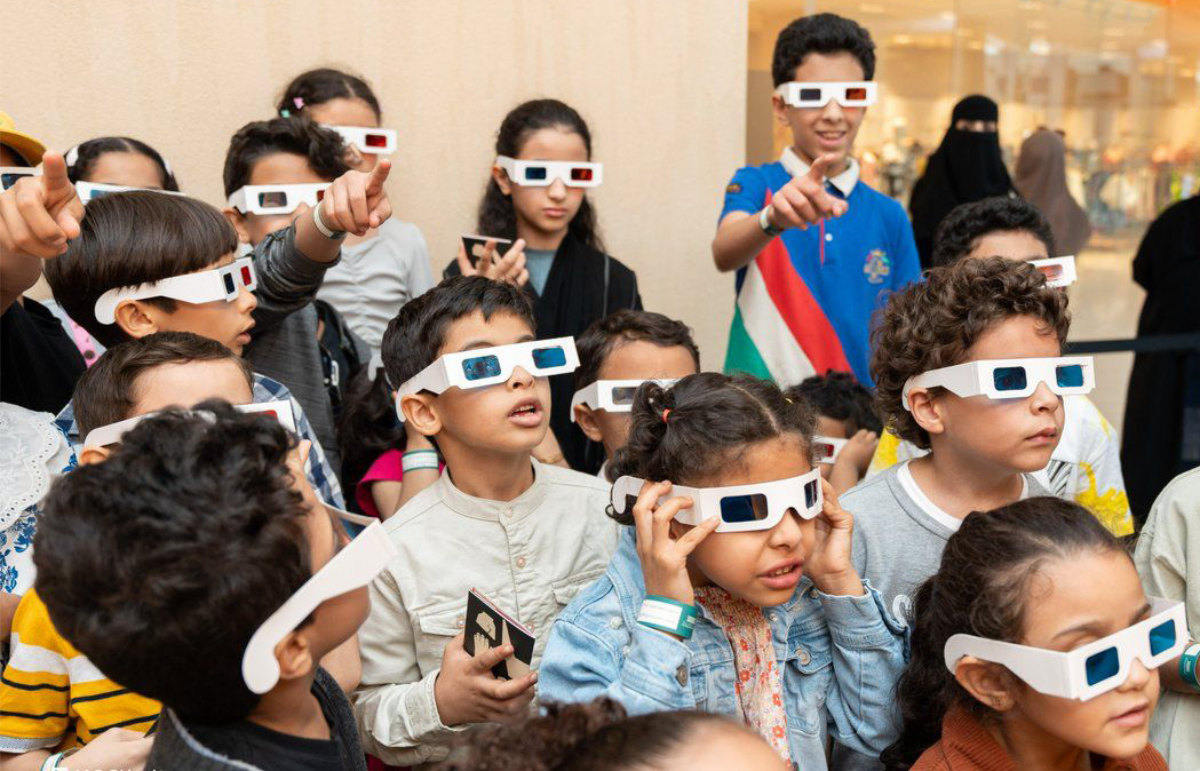TAREQ AL-THAQAFI

The commission said that children, through the “Once Upon a Time” corner, view a scene that simplifies the concept of archaeology and shows the great value of ancient civilizations, and their unique and precious heritage
MAKKAH: Saudi Arabia’s Heritage Commission in Abha recently concluded the Little Explorer initiative — a national scheme designed to inspire the next generation’s curiosity and interest in the region’s heritage and archaeological discoveries.
The program, which is being held around Saudi Arabia, aims to educate children in antiquities and explore the history of the Kingdom and its civilizations in a fun and informative manner.

The little explorer initiative aims to prepare a generation that understands the importance of heritage and involve them in archaeological excavations. (Supplied)
The Heritage Commission told Arab News that the Little Explorer initiative was launched by Prince Badr bin Abdullah, minister of culture and chairman of the Heritage Commission’s board of directors, in March 2022.
The scheme targets young children and youth in all regions of the Kingdom, to prepare a generation that understands the importance of heritage and involve them in archaeological excavations.
The commission added that the activities are divided into two main stages. The first stage targets children aged six to 12 and is held in a number of commercial centers in 10 regions of the Kingdom.
It involves various events, including guidance on methods of discovering, extracting, documenting and restoring antiquities, as well as preserving archaeological collections using simplified scientific methods, accompanied by entertainment. It aims to build a relationship between children and antiquities, link them to their history and develop their spirit of teamwork.

The little explorer initiative aims to prepare a generation that understands the importance of heritage and involve them in archaeological excavations. (Supplied)
The commission said that children, through the “Once Upon a Time” corner, view a scene that simplifies the concept of archaeology and shows the great value of ancient civilizations, and their unique and precious heritage. It also reinforces in children the importance of the Kingdom’s archaeological sites.
The “Interactive Glasses” section uses virtual reality glasses to allow children to explore a three-dimensional map of the Kingdom, through which they can learn about 10 significant archaeological sites.

The little explorer initiative aims to prepare a generation that understands the importance of heritage and involve them in archaeological excavations. (Supplied)
In the “Earth Layers” corner, children learn about the internal structure of land layers. They can simulate layers of the earth using sand and clay to better understand the excavation process.
The “Excavation Simulation” corner provides children with a practical application of archaeological excavation in virtual archaeological sites that simulate real locations throughout the Kingdom. The simulation teaches children how to discover and extract antiquities using specialized field tools.

The little explorer initiative aims to prepare a generation that understands the importance of heritage and involve them in archaeological excavations. (Supplied)
In the “Registration of Antiquities” corner, children learn how to maintain and restore antiquities, and how to transport and preserve them.
In the “Satisfy Your Curiosity about Antiquities” section, children can ask an expert archaeologist any questions they have.
After that, children move to the “Write Your Name in Musnad Script” corner to learn about ancient writing scripts. A photograph opportunity commemorates the day for the participants.
The commission said that the second stage of the activities targets students aged 13 to 17, and involves seven school field trips to six archaeological sites across the Kingdom. An archaeological expert at each site introduces the students to the history of the location, its archaeological significance and the most prominent events that took place at the site.
Learning about the Kingdom’s history and archaeological value enhances national belonging among students.
The initiative is part of efforts by the commission to increase children’s awareness of cultural heritage, strengthen their relationship with their homeland, encourage the preservation of heritage and antiquities, and develop their spirit of creativity.
No comments:
Post a Comment